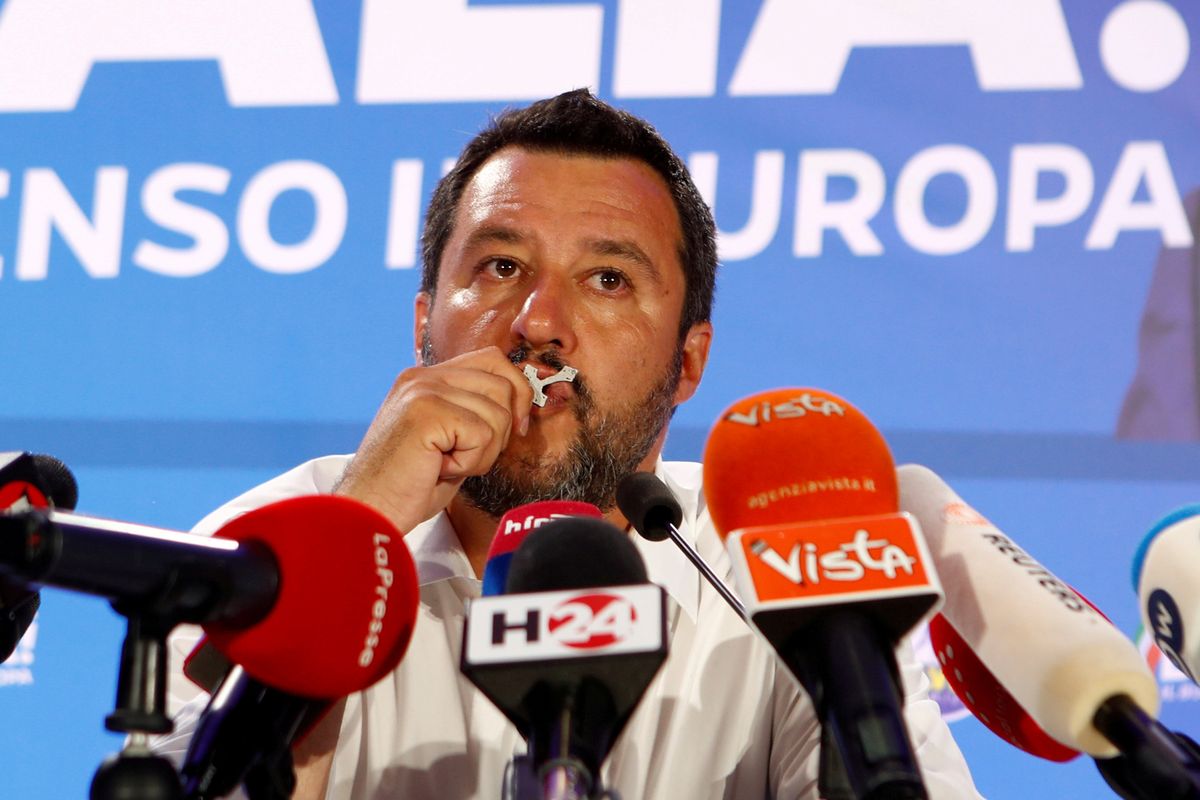Politics often makes for strange bedfellows, but rarely have we seen a sleepover as peculiar as what happened in Italy this week. The anti-establishment 5-Star Movement (M5S) and the mainstream center-left Democratic Party (PD) have agreed to form a governing coalition. If they can get parliament to support their cabinet choices, it would end the recent uncertainty around who, exactly, is running the third largest economy in the eurozone. But will the new government be any more stable or functional than the last?
The backstory: Three weeks ago, Interior Minister Matteo Salvini pulled his populist rightwing Lega party out of a coalition government with M5S. Their coalition had been a bizarre and fragile alliance from the start, a tie-up of two populist parties with vastly different ideas of how to govern. By ditching that coalition earlier this month, Salvini — no stranger to unabashed risk taking — hoped to capitalize on his high approval ratings by triggering snap elections that he thought he could win outright. His plan has backfired badly – for now.
Some hope for the eurozone: After 14-months of feuding between the Lega-M5S alliance and Brussels over Rome's ballooning deficit (the country's debt to GDP ratio is expected to rise to 135% by 2020) EU leaders may welcome this new government. After all, the mainstream PD is likely to temper M5S's spendthrift populist instincts.
How tenable is the new coalition? Until just a few days ago, M5S and PD were sworn political nemeses. Now they will run Italy together. But if the only glue that holds them together is their mutual disdain for Salvini, it may quickly become difficult to govern. In principle their coalition could last until 2023, but fissures are likely to open well before that.
What's next for Salvini? His Lega party is still the most popular party in Italy, a fact that he will make much of as an opposition leader, railing against the government. And being out of power will enable him to avoid the taint of the upcoming fiscal negotiations, while also positioning himself to capitalize on any missteps or crackups in the bizarre new coalition.
Takeaway: Italy is going from one unwieldy and politically-unnatural coalition government to another. Will this enemy-of-my-enemy government be able to deliver, or will it fail in a way that elevates their enemy after all? Watch this space!


















